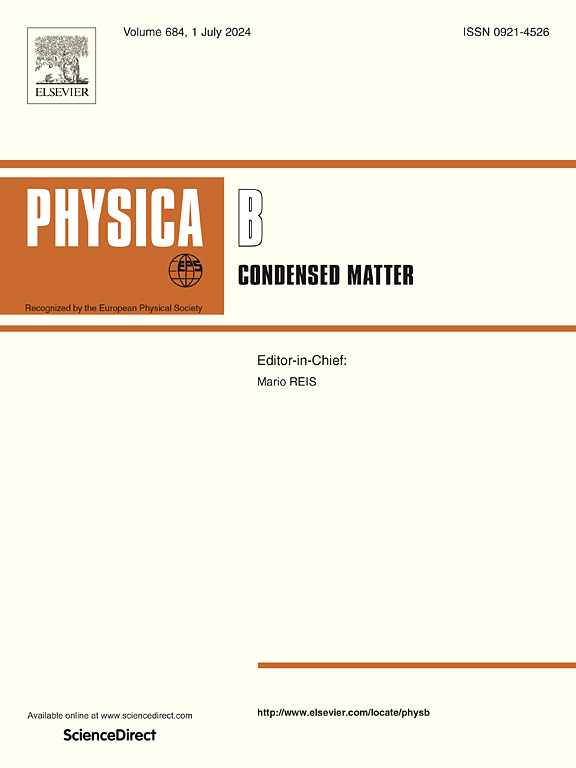使用压烧结靶材沉积氧化锌和铝掺杂氧化锌薄膜
IF 2.8
3区 物理与天体物理
Q2 PHYSICS, CONDENSED MATTER
引用次数: 0
摘要
氧化锌(ZnO)和掺铝氧化锌(AZO)薄膜的沉积过程是使用一个定制的沉积系统,该系统由射频电源供电。沉积过程中使用的靶材由定制的压制烧结靶材制成。溅射沉积仅使用氩气,温度为 9.5 Pa,功率为 50 W。结果表明,氧化锌和氧化亚氮薄膜的生长具有沿 c 轴的优先取向。显微镜图像显示,生长的晶粒分布均匀,致密无空隙,呈柱状结构。可见光透射率在 70% 到 80% 之间。对于 AZO 薄膜,铝的掺杂水平为 0.64 at.%,片电阻为 560.3 Ω/sq,载流子浓度为 -2.65 × 1020 cm-3,迁移率为 14.50 cm2V-1s-1。优点系数为 1.2 × 10-4 Ω-1。这项工作证明了在低真空条件下制备具有可调成分的粉末状靶材以沉积透明薄膜的可行性。本文章由计算机程序翻译,如有差异,请以英文原文为准。
Deposition of ZnO and Al-doped ZnO thin films using pressed-sintered targets
Zinc oxide (ZnO) and aluminum-doped ZnO (AZO) thin films were deposited using a custom-built deposition system operated by a radio frequency power supply. The targets used for the deposition process were made from custom-made pressed-sintered targets. Sputter deposition was carried out using argon gas only at 9.5 Pa and 50 W power. Growth of ZnO and AZO films with a preferred orientation along the c-axis was confirmed. Microscopy images revealed the growth of uniformly distributed grains that are dense and void-free with a columnar structure. Visible light transmittance ranged from 70 to 80%. For AZO films, the Al doping level was 0.64 at.%, the sheet resistance was at 560.3 /sq, carrier concentration at -2.65 × 1020 cm−3, and mobility at 14.50 cmV−1s−1. The figure of merit is 1.2 × 10−4 . This work demonstrated the feasibility of preparing powder-based targets with a tunable composition to deposit transparent thin films under low vacuum conditions.
求助全文
通过发布文献求助,成功后即可免费获取论文全文。
去求助
来源期刊

Physica B-condensed Matter
物理-物理:凝聚态物理
CiteScore
4.90
自引率
7.10%
发文量
703
审稿时长
44 days
期刊介绍:
Physica B: Condensed Matter comprises all condensed matter and material physics that involve theoretical, computational and experimental work.
Papers should contain further developments and a proper discussion on the physics of experimental or theoretical results in one of the following areas:
-Magnetism
-Materials physics
-Nanostructures and nanomaterials
-Optics and optical materials
-Quantum materials
-Semiconductors
-Strongly correlated systems
-Superconductivity
-Surfaces and interfaces
 求助内容:
求助内容: 应助结果提醒方式:
应助结果提醒方式:


